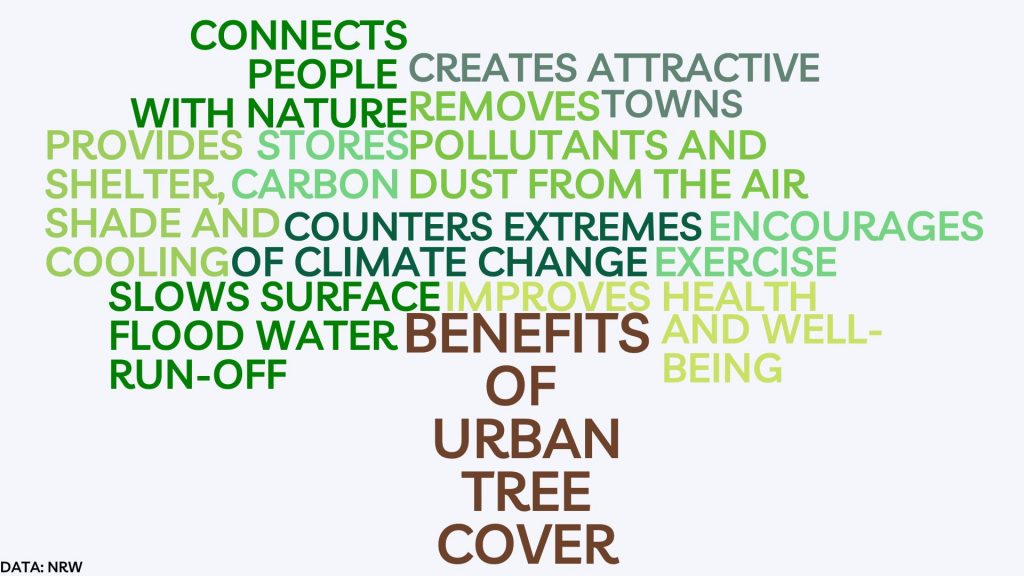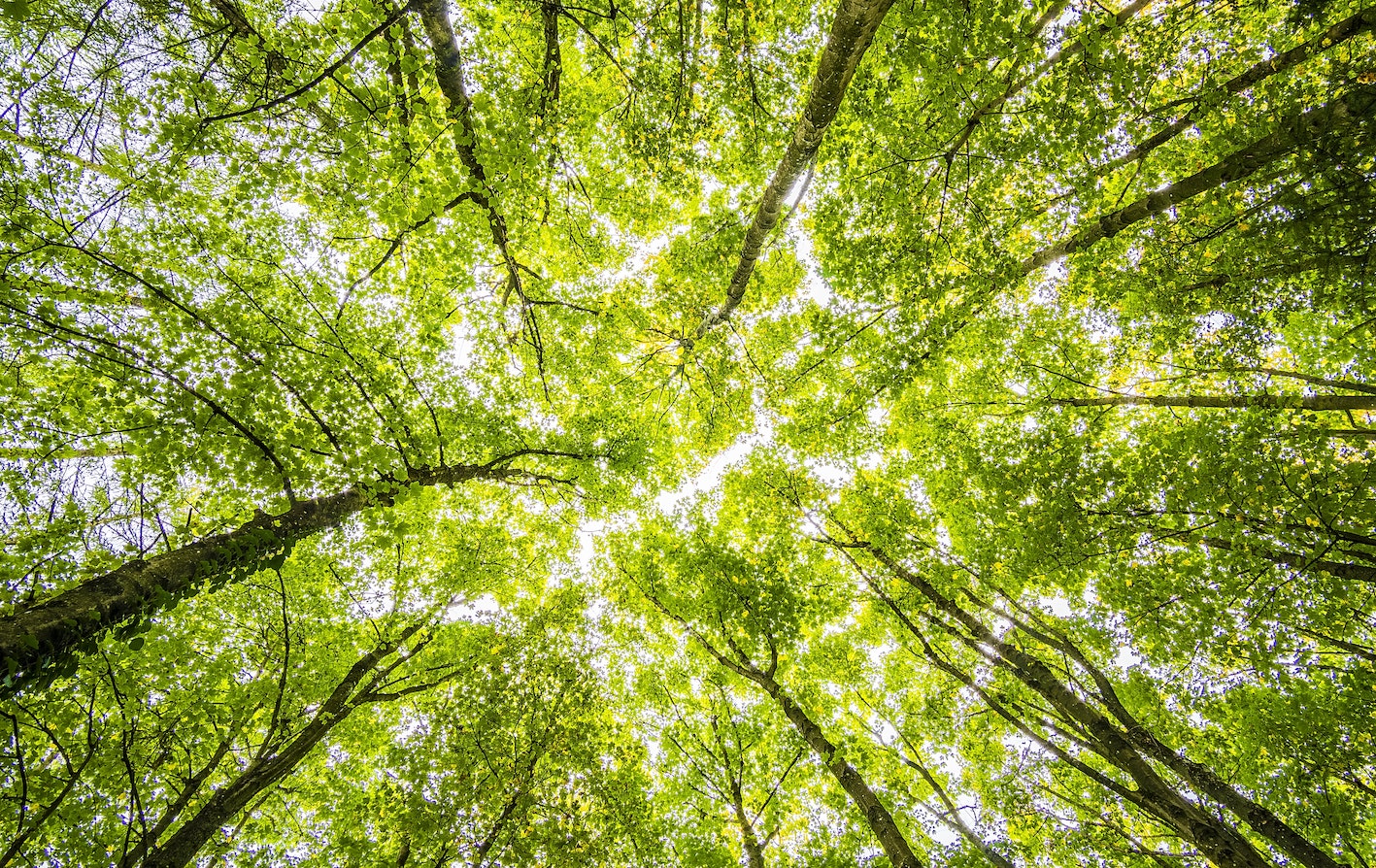From mitigating the urban heat island effect to reducing the risk of flooding, how do trees benefit Welsh people?
TREES are the biggest plants on the planet and are essential for our survival in providing oxygen, but there are many other benefits provided by increased canopy cover.
Perhaps the most topical benefit of trees is the cooling effect they provide, seen clearly when Wales reached a record-breaking temperature of 37.1°C on Tuesday, July 19 this year.
Record-breaking
Hawarden Airport, in Flintshire, North Wales, broke Welsh temperature records during July’s heatwave.
In Natural Resources Wales’ landmark canopy cover survey, Saltney, the nearest town to Hawarden, was named as a ‘priority town’ for adoption of a strategic approach to increase tree cover.
The report said: “Saltney stands out for its particularly low cover at 5.5%.”
This is well below the ‘at least 20% tree cover in Wales’ towns and cities by 2030’ that has been recommended to the Welsh Government by Forest Research.
Despite the benefits of increasing canopy cover, Saltney showed continued overall canopy loss, and this is concerning given that trees are difficult to replace.
Nigel Pugh, Campaigns Lead for Woodland Trust Cymru, said: “The first rule with trees is to protect what you already have, because trees are pretty much irreplaceable. This is because ancient and veteran trees are much better at storing carbon and providing shade.”
Woodland Trust analysis found that although ancient and long-established trees only make up about a quarter of British woodlands, they lock up more than a third of the total carbon stored by trees.

Airports and their surrounding areas, in being clear spaces for planes to land and take off, are completely absent from tree cover.
Meteorologists suggest that temperature records are logged at airports because of how heat reflects off tarmac.
Therefore, they have an effect similar to the urban heat island effect, even though Hawarden is a rural village.
⬇What is the urban heat island effect?⬇
The urban heat island effect is a phenomenon whereby buildings and roads absorb and retain heat, so that cities are significantly hotter than surrounding areas with more canopy cover or green space.
Mr Pugh explained: “If you were to stand on a street in Cardiff where there is no canopy cover on a very hot day, that solid landmass absorbs heat and amplifies the heat and makes it more extreme.
“But if you were to then take the temperature in an area of the high street that had tree canopy cover the heat island effect is dramatically reduced.
“This is because trees provide shade, they reflect more solar radiation and store less energy than artificial surfaces such as concrete. They also release of water vapour which has a cooling effect.”
One caveat is that trees only provide the cooling effect which counters the urban heat island effect when they are more mature and growing well.
Mr Pugh said: “Trees that are planted must be well maintained for the cooling benefits of canopy cover to be provided.”
Cardiff
Cardiff is often called a green city, and has multiple accolades to this end, including being named the UK’s third greenest city in a recent university study based on factors like green space and pollution.
Cardiff has a notable green corridor along the Taff, stretching from the city centre to the greenbelt to the north of the city.
But, the cooling benefits of trees are only felt in areas where canopy cover is higher.
Councillor Jen Burke-Davies, Cabinet member for Culture, Parks and Events said: “Up in Cardiff North, we have roads with high levels of traffic like Gabalfa Avenue which cuts from Western Avenue up to College Road which are tree-lined.
“You walk down there on a hot summers’ day, and you can feel the difference as the shade provides respite from the sun.
“But in Cardiff South and Penarth, the southern arc of the city, you have areas like Splott, Adamsdown, Grangetown and Butetown where the roads tend to be much sparser.”
Other benefits
The cooling effect is a topical benefit of tree cover, but increased canopy cover also provides many other benefits.

Mr Pugh said: “Trees perform a range of services which help in an environmental and ecological emergency and there are health benefits to higher canopy cover.
“They strip pollution, and this is where you can see differences where poor communities have not got that tree cover.
“There are other amazing benefits like the aromatherapy provided by trees. Trees release release antimicrobial essential oils which physically boost your white blood cell count, helping your body fight diseases.”



